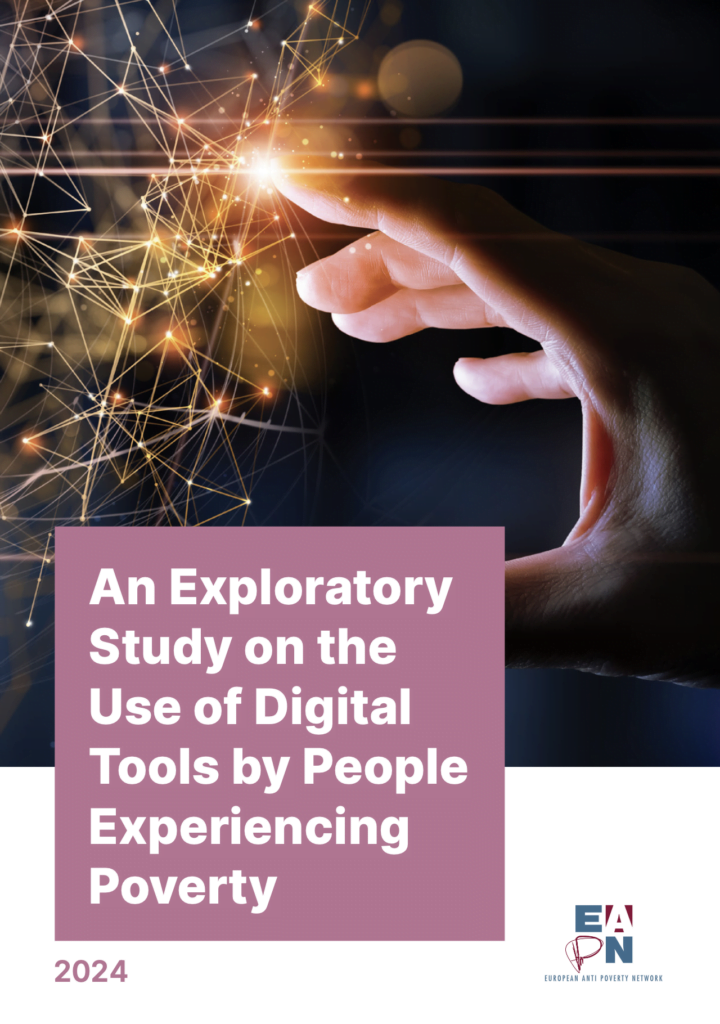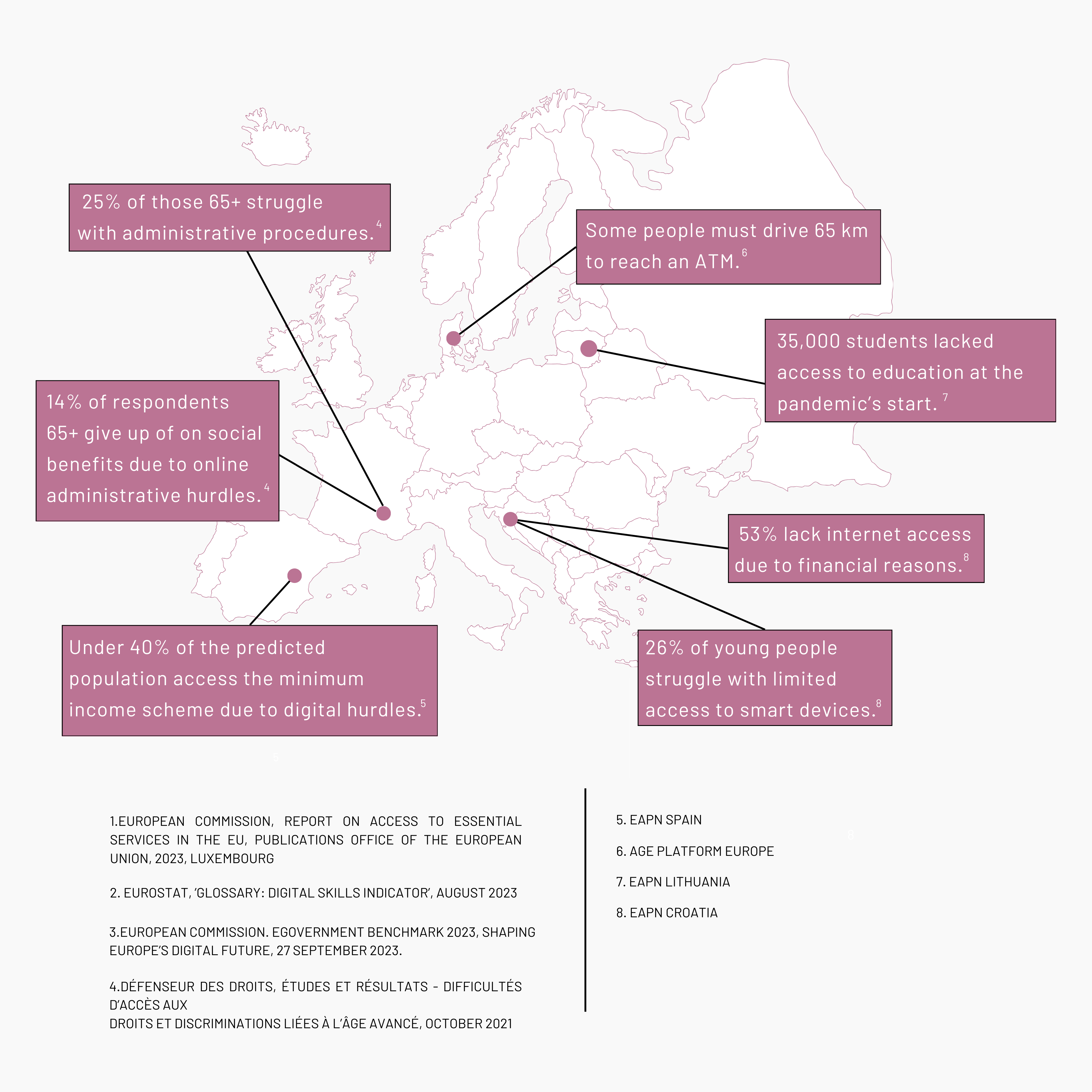
This report examines the current landscape surrounding the digitalisation of essential services and its impact on people experiencing poverty.
It will also explores the consequences of the use of AI by European Member States on the access to social protection schemes and support services.
The study covers the period from 2021 to 2024 and includes comprehensive desk research and the analysis of 14 questionnaires received from EAPN national networks in Austria, Bulgaria, Croatia, Cyprus, France, Ireland, Lithuania, Macedonia, the Netherlands, Poland, Portugal, Slovakia, Spain, and Sweden.

Key Findings
- Online Access: The reliance on smart devices and internet access for essential services excludes many individuals.
- Cashless Society: Digital banking exacerbates financial exclusion for those lacking digital literacy.
- In-Work Poverty: Lack of digital skills traps individuals in low-paying jobs.
- Automation of Discrimination: Data-driven systems often misjudge needs, leading to ineffective support.
- Surveillance and Control: Increased policing of impoverished individuals through digitalisation.
- Austerity Measures: Reduced investment in support alternatives worsens digital poverty.
Conclusions
There is a concerning trend of digitally induced poverty. Additionally, the automation of discrimination facilitated by AI is also cause for attention in social justice organisations. Moreover, because digitalisation is seen as tool for increased efficiency of the welfare, it risks becoming a tool for implementing austerity measures.
Recommendations
- Digital services must be accompanied by physical, accessible, affordable, and quality essential services available to all as well as easy-to-navigate assistance
- The right to cash payments must be preserved.
- Member States must guarantee that digital tools are accessible to all without discrimination.
- Member States must expand internet coverage in remote and rural areas.
- The digital transition must be accompanied by robust digital literacy and skills programs spanning all age groups.
- Digital welfare states must put wellbeing at its core and use technology for improving vulnerable people’s lives.
- Welfare systems must combat discrimination and support those in need
- Member States and workplaces must be transparent about the use of AI and data collection practices.
- The online application process for social protection needs to be created in cooperation with civil society organisations and beneficiaries.
- Member States must conduct comprehensive impact assessments of digitalisation and AI to assess their effect on society’s advancement as well as on people’s well-being and inclusion.
- Governments must guarantee people’s privacy, better connectivity, specifically better availability of a high-speed internet connection and [their] greater affordability.
- Digital welfare systems must be collaboratively developed by the individuals they are intended to serve
Deeper reflection regarding techno-solutionism needs to take place, as digitalisation doesn’t challenge the root cause of poverty, and even reinforces exclusion from society. Only through a concerted effort to centre human needs and rights can we truly create a welfare state that serves the interests of all, leaving no one behind.
